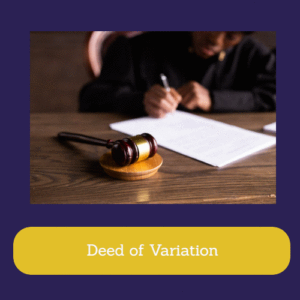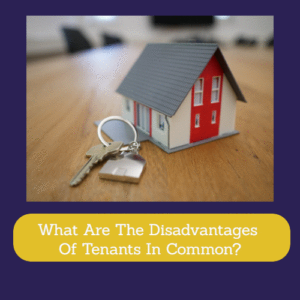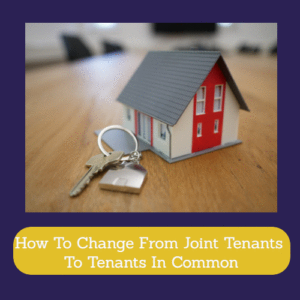 Expert Deed Of Variation Solicitors
Expert Deed Of Variation Solicitors
If it is necessary to alter a Will or a lease, it may be possible to do this by executing a deed of variation. We take a look at when a deed of variation can be used and why.
At Solicitors Near Me, we connect people to legal experts to help in a wide range of circumstances. Our service will match you with a solicitor with the right level of expertise to deal with your case.
We select our solicitors for their legal excellence as well as for the high level of service they provide. If you need a deed of variation prepared or advice on whether this is the right option for your circumstances, we can find you a solicitor to give you the guidance you need.
To be connected to a specialist solicitor near to where you live or work, please either call us now on 0845 1391399 or complete a Free Online Enquiry.
What Is A Deed Of Variation?
A deed of variation is a legal document that can formally change the terms of either:
- A Will; or
- A lease
When Do You Use A Deed Of Variation?
Deed Of Variation Of A Will
A deed of variation of a Will is used by beneficiaries who want to change the terms of a Will. A beneficiary can only make a deed of variation to change a Will in certain circumstances and the change can only relate to the portion of the estate that they are entitled to receive and not to anyone else’s share.
The deed of variation will set out what the beneficiary wants to happen to their inheritance instead.
Why Vary A Will?
There are many reasons why you may want to change the terms of a Will to allow someone else to benefit from your inheritance, including:
- To avoid paying Inheritance Tax on the same money twice, firstly when money is passed to you and then in time when it is passed on to your choice of beneficiary. If the money goes straight to the final beneficiary, it will not form part of your estate, so no Inheritance Tax would be payable on it
- To reduce a Capital Gains Tax liability
- You would like someone else to benefit from the money now and you do not need it yourself
- You feel that the money should have been shared differently and you want to put that into effect, for example, someone may have been excluded from the Will or a child has been born since the Will was written
- You would like to make a donation to charity and by changing the Will, Inheritance Tax will not have to be paid on the money going to charity
Legal Advice On Varying A Will
It is important to take legal advice before agreeing to a deed of variation. There could be implications for others as well as yourself, for example, the estate could become liable for more Inheritance Tax if the deceased was your spouse and you leave your inheritance to someone else. This is because, as a spouse, you would not pay Inheritance Tax on money from your spouse’s estate.
Tax issues surrounding inheritance are notoriously complex and you are strongly advised to speak to an expert Wills and probate solicitor who will be able to ensure that any changes you make are beneficial and that you fully understand the implications of making them.
Who Can Vary A Will?
To vary a Will, you and all of the beneficiaries named in the Will need to be aged 18 or more.
All of the beneficiaries must agree to the proposed changes. You cannot be compensated in return for agreeing to adjust your share, either by another beneficiary or by anyone else.
In some circumstances, the court may need to give its approval to a deed of variation, including where children or unborn children could be affected by the change.
Deed Of Variation Of A Lease
A deed of variation of a lease can be used to change certain terms contained in a lease. This is the document made between the freeholder of a property and someone who has a leasehold interest. A common example is a flat owner, where the freeholder owns the land and buildings and the flat owner has a lease of their individual flat.
Leases are lengthy documents containing many terms and conditions, including the length of the lease, the rent payable, requirements to give notice in respect of certain issues such as alterations and restrictive covenants preventing the leaseholder from carrying out certain actions, such as keeping pets at the property.
Why Vary A Lease?
You may want to vary your lease for a variety of reasons, including to:
- Extend the term of the lease informally by agreement with your landlord
- Address a legal issue so that you can sell the property
- Amend or remove a restrictive covenant, for example, to allow someone to carry out business at the property or to sublet the flat
- Change provisions surrounding ground rent
- There is an error in the original lease
Legal Advice On Varying A Lease
If you have been offered a deed of variation to change your lease, you should speak to an expert property solicitor before agreeing to the alterations. Similarly, if you wish to make changes yourself, you are advised to ask a solicitor to draft and register the deed of variation to ensure that it is legally effective and that it has been correctly worded.
A property solicitor will also be able to advise you of the implications of agreeing to a deed of variation and check that the alterations are in your best interests.
If the property is subject to a mortgage, the lender will also need to approve the variation and give their consent. This will need to be dealt with by your solicitor.
The other party will also need to approve the deed and execute it. If you are the leaseholder, the other party is the freeholder. They are likely to refer the matter to their solicitor for advice before signing.
How Much Does A Deed Of Variation Cost?
The cost of a deed of variation will depend on how complex the situation is and how much work is required by your solicitor.
We can match you with a solicitor with the right level of experience so that you will not pay for more expertise than you need. They will be able to provide you with an estimate of the costs at the outset so that you know from the start how much the work is likely to cost.
They will also be able to advise you of any other potential costs such as valuation fees, Land Registry fees and whether you will be required to pay the landlord’s legal costs.
Contact local deed of variation solicitors
To be connected to a specialist discrimination solicitor near to where you live or work, please either call us now on 0845 1391399 or complete a Free Online Enquiry.

 Care home fees can be much higher than many people expect. Understandably, this means there is often a desire to minimise those costs. The way owning property as tenants in common and care home fees works can be a very beneficial interaction to understand.
Care home fees can be much higher than many people expect. Understandably, this means there is often a desire to minimise those costs. The way owning property as tenants in common and care home fees works can be a very beneficial interaction to understand. Tenants in common is one of the ways that many people in the UK choose to buy property together. It’s often perceived to be a better solution than being joint tenants, but it’s not perfect. So, what are the disadvantages of tenants in common?
Tenants in common is one of the ways that many people in the UK choose to buy property together. It’s often perceived to be a better solution than being joint tenants, but it’s not perfect. So, what are the disadvantages of tenants in common? Can I sign my house over to my daughter in the UK? Yes, you can sign your house over to your daughter in the UK. Many people gift their home or other property they own to their children. You might want to minimise Inheritance Tax or help get them onto the property ladder.
Can I sign my house over to my daughter in the UK? Yes, you can sign your house over to your daughter in the UK. Many people gift their home or other property they own to their children. You might want to minimise Inheritance Tax or help get them onto the property ladder. How to change from joint tenants to tenants in common.
How to change from joint tenants to tenants in common.